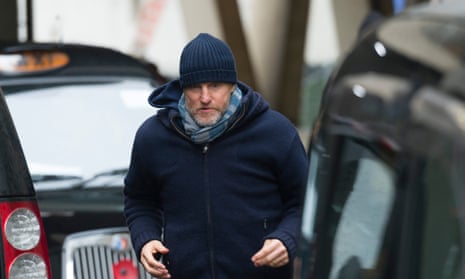The British film production boom, including the Han Solo spin-off from Star Wars and a live action remake of Disney’s Dumbo, is helping boost services industry growth as other sectors flag.
“Motion picture activities” – including production activity and income from box office hits such as Wonder Woman, Beauty and the Beast and Guardians of the Galaxy Vol. 2 – were singled out by the Office for National Statistics on Wednesday as playing a significant role in the modest growth in UK GDP reported in the three months to the end of June.
The 8.2% surge recorded in the second quarter by the wider film, TV and music sectors – mostly accounted for by the boom in motion picture activity – made it the second largest contributor to the 0.5% increase in services GDP reported by the ONS, after the retail industry.
The ONS figures show that since 2014 the economic value of the UK’s film, TV and music industries has grown 72.4%, compared with just 8.5% across the European Union.
This boom is being fuelled by Hollywood studios increasingly choosing to shoot big-budget films in the UK, attracted by significant government tax breaks, as well as access to top-class on- and off-screen talent and studio facilities.
Pinewood, the home of the James Bond franchise, which is in the process of doubling its size, is currently filming Tim Burton’s live action version of Dumbo, starring Colin Farrell, and the second Star Wars spin-off after Rogue One, focusing on the early life of Han Solo and featuring Woody Harrelson and Emilia Clarke.
The UK box office is also on a roll, with takings up 13% year on year and admissions up 6%, according to comScore.
“The UK cinema industry is enjoying a period of exceptional success,” said Phil Clapp, chief executive of the UK Cinema Association. “UK audiences are responding positively not just to a diverse and high quality film slate, but also it seems to unprecedented levels of investment in all aspects of the cinema-going experience.”
The TV production industry is also enjoying a golden age of investment, with deep-pocketed new arrivals such as Netflix pouring £100m into royal series The Crown and Amazon investing in Jeremy Clarkson’s The Grand Tour and historical drama Outlander. This investment has rocketed due to a film-style tax credit introduced in 2013 for shows costing at least £1m an episode.
The slide in the value of the pound following the EU referendum has added an extra carrot luring foreign film and TV production investment into the UK.
In May, the French maker of lavish TV period drama Versailles, the most expensive French-language drama ever made, set up a London office to tap the UK market for talent and drama projects in a move influenced by the weakening of the pound since the Brexit vote.
Last week, the government revealed that it paid out almost £600m in tax relief last year to the makers of films and big budget TV productions that passed a “cultural test” that qualified them as British-made.
On Wednesday, the culture department said that employment in the creative industries was growing at four times the rate of the wider UK workforce. The DCMS said that employment levels in the sector have grown 5% year on year to almost 2 million people, compared with just 1.2% growth for the wider job market.

Comments (…)
Sign in or create your Guardian account to join the discussion